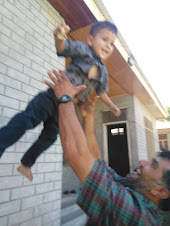The self-esteem of individuals is how they feel or perceive themselves and how people
think about them are included in the fourth level of the hierarchy of human needs.
Students in learning places desired to achieve competence, gain approval and
gain recognition from others (Huitt, 2004). In the research regarding the
effect of cooperative learning on students’ self-esteem, Khan (2008) found that
cooperative learning enhanced the reading and writing skills necessary for the
achievements of the students at the elementary level.
Findings revealed that the
relevance of cooperative learning in enhancing self-esteem was based on the
assumption that students in cooperative learning performed the roles that were
essential to the completion of group work. The students possessed the
information and resources which were crucial for their teams thus interactions
among the team members promoted their psychosocial adjustment as the individual
effort of every student was encouraged and supported in order to achieve the
group success.
High or low
self-esteem of students is also an outcome of the socio-economic status of parents
as Mustapha and Mustapha (1997) in their research found significant differences
among the students regarding self-esteem and the factors affecting academic achievement.
Students of two types of schools were compared and a significant difference was
found in the family environment and academic achievement. The results indicated
that different socialization processes, parental care, and encouragement,
experiences, and opportunities for smooth nurturing differently develop students’
attitudes and levels of motivation to enhance academic achievement.
A
significant difference was found in the levels of self-esteem of students with
respect to their parents’ educational and occupational status which indicated
that highly educated parents with productive occupational status provide
facilities and opportunities to their children for a smooth physical and
academic growth which foster academic achievement of students in a classroom
climate. Sletta, Valas, Skaalvik, and Sobstad (1996) found in their research
study that the students who are lonely in schools have lower self-esteem and
receive fewer choices in a socio-metric tool; for example, choosing a friend in
the class and have more negative perceptions of their social behaviors.
Than the
students who are not lonely. The study confirmed that the one-sided experience of
loneliness strongly affects self-esteem and perceptions of social competence.
Midgett, Ryan, Adams, and Smith (2002) in a study found that school efforts to
enhance self-esteem maximize the academic achievements of the students effectively
when parents’ support and children’s motivation and general cognitive skills
are taken into consideration. Students’ achievements are raised by ensuring
esteem needs which include approval, recognition, and respect from parents,
teachers, and colleagues.
References
Huitt, W.
(2001). Humanism and open education. Educational Psychology Interactive.
Valdosta,
GA: Valdosta State
University. Retrieved May 12, 2009, from
http://chiron.voldasta.edu/whuitt/col/affsys/humed.html
Midget, J.,
Ryan, B. A., Adams, G. R., & Smith, J. C. (2002). Complicating achievement
and self-
esteem: Considering the
joint effects of child characteristics and parent-child interactions. Contemporary
educational psychology, 27, 132-143.
Mustapha, N.,
& Mustapha, N. A. (1997). Socio-economic status, self-esteem, and common
entrance exam results. Educational practice and theory, 19(2), 73-83.
Slatta, O., Valas, H.,
Skaalvik, E., & Sobstad, F. (1996). Peer relations, loneliness, and
self-
perceptions in
school-aged children. British journal of educational psychology, 66, 431-445.

